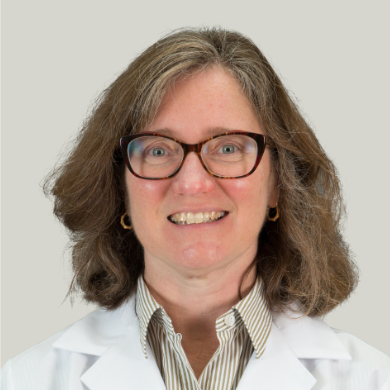
Researcher Profiles

Lucy A. Godley, M.D., Ph.D.
2021 Funding recipient
Germline predisposition to MDS: frequency and syndrome discovery
Discovery Research Grant 2021
PROJECT SUMMARY
Myelodysplastic syndrome (MDS) is typically diagnosed in older individuals, at an average of 72 years old in the United States. Recent comprehensive studies performed in children and young adults have found that about 15% of those with MDS have a DNA change, called a mutation, that drives the development of the disease. Sometimes the DNA change is inherited from one of the individuals’ parents, and sometimes that DNA mutation arises spontaneously. In either case, the DNA is present in every cell in the person’s body, which is called a germline mutation. In some subsets of young MDS patients, almost 40% of individuals have these germline mutations, often in the genes SAMD9, SAMD9L, and GATA2. Recently, we have extended our knowledge regarding germline predisposition to MDS to include adults diagnosed between the ages of 18 and 40 years old. In this age group, we find that 19% of MDS patients have germline mutations, commonly in genes that control DNA repair and the stability of chromosome ends. We also know that at least some older adults, those diagnosed with MDS at an average age, have germline DDX41 mutations.
Despite the increasing appreciation for the role of germline DNA mutations in driving MDS, we still have two large gaps in our knowledge: We do not know which germline DNA mutations predispose to the development of MDS in those diagnosed from 41 years old and up into the elderly age range. This is an important gap to fill, since these cases represent the majority of individuals diagnosed with this disease, many of whom are eligible for curative stem cell transplants. Because relatives are the preferred stem cell donors, it is critical to identify which patients have inherited DNA mutations to avoid re-introduction of the mutation as well as risk to the donor from the process of collecting the stem cells. Moreover, we do not know if we have identified all of the genes in which germline DNA mutations cause MDS, so we may not even have a full list of MDS predisposition genes. Without a complete list of MDS-risk genes, we are failing to recognize MDS patients and families with germline predisposition and therefore are not counseling or treating them adequately.
This proposal seeks to fill these knowledge gaps. We hypothesize that deleterious germline DNA changes drive MDS development in people of all ages. We will test this hypothesis using two approaches. First, we will determine which DNA changes drive MDS in people older than 40. This work will take advantage of a special DNA sequencing platform developed by our group that covers all of the DNA regions known to confer germline risk for bone marrow-derived cancers. Second, we will perform novel syndrome discovery by analyzing additional genes using the sequencing data from individuals who have tested negative for recognized predisposition disorders. Some individuals may have mutations in genes known to confer risk for solid tumors, but not yet appreciated to contribute to the development of MDS or other bone marrow cancers. Others may have mutations in genes not yet associated with cancer risk.
The results from this work will determine the frequency with which known germline predisposition syndromes cause MDS across the age spectrum and will also define new susceptibility disorders. The recognition that MDS patients carry a genetic mutation driving their disease is essential to ensure the use of unaffected relatives as stem cell donors when these patients are undergoing potentially curative stem cell transplants. This work could also lead to recommendations for standard testing for germline predisposition syndromes in MDS patients, especially in those for whom stem cell transplants using related donors are being considered. Our results may prompt the implementation of surveillance strategies in mutation carriers to decrease morbidity and mortality for other cancers/diseases associated with particular germline mutations. Finally, genes that confer genetic predisposition highlight critical cellular pathways that lead to MDS, the recognition of which could lead to new therapeutic strategies and even interventions to delay or prevent MDS development in at-risk mutation carriers.

